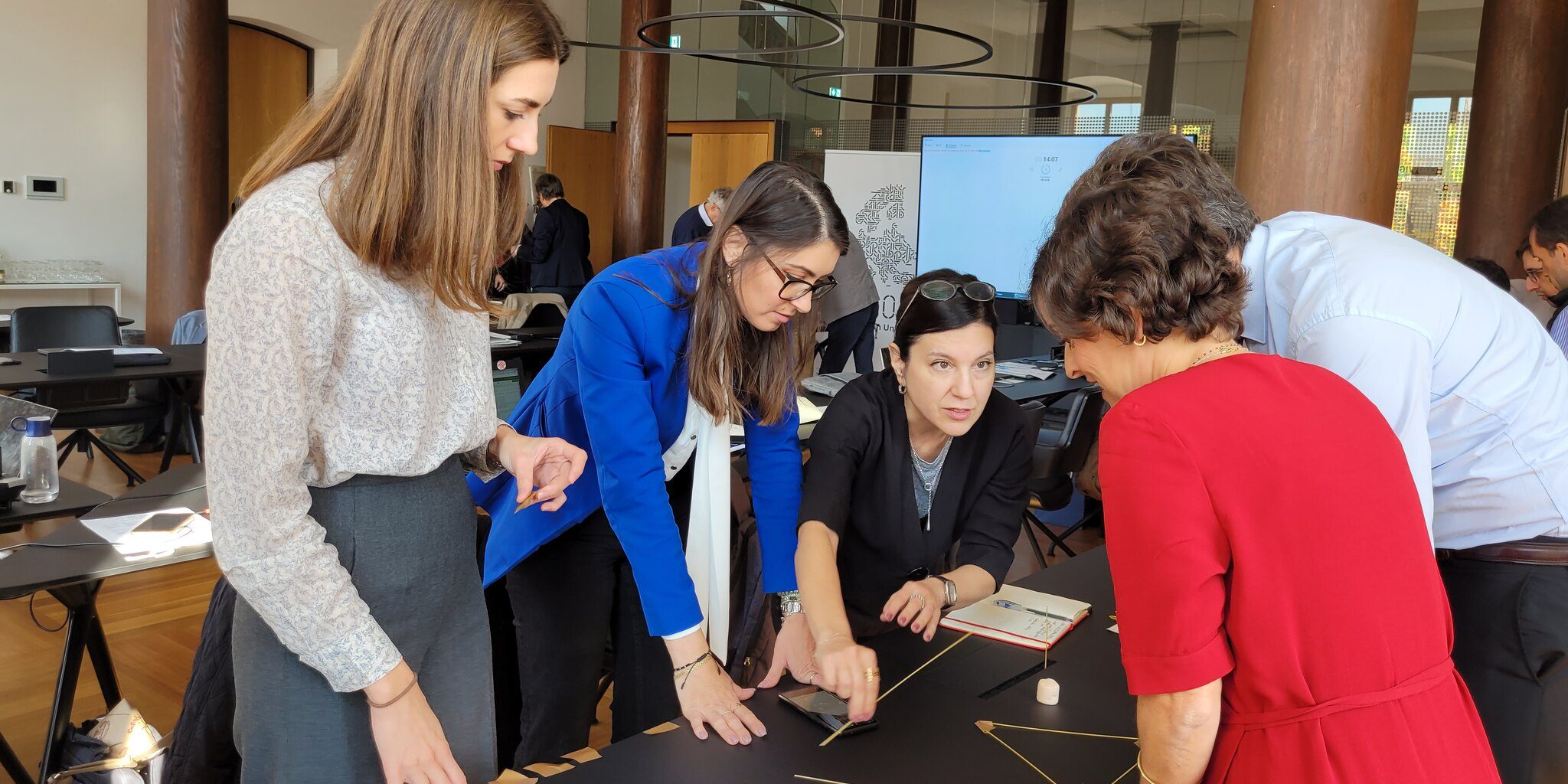2022 comes to an end and opens the door to a new stage of EELISA. As the second year in the life of the Alliance, this year has meant the activation and achievement of many of the initiatives and milestones marked on paper at the beginning of the EELISA journey. The new year brings out a new stage preceded by an important moment of reflection, evaluation, and exchange of ideas and expectations,
A reality that is reflected in the testimony of Inês Roquero, the new EELISA Manager Facilitator. We invite you to read about her experience during the “EELISA Writing Retreat”, celebrated in Erlangen (Germany) last October, to understand this remarkable moment for each and every one of the EELISA members who are building and looking to the future of the Alliance.
____
Throwback to the Erlangen Writing Retreat: co-creating the next phase of EELISA
From 11 to 14 October 2022, exactly one month after I joined the EELISA Office team as Manager Facilitator, I had the opportunity to participate in the EELISA Executive Board meeting that took place at Friedrich-Alexander-Universität in Erlangen, Germany. On this occasion the EELISA Executive Board met for what we called a “writing retreat”: 3 days fully dedicated to co-develop the bases for the next phase of EELISA.
Solid pillars as a good starting point for the next phase
Since its foundation, EELISA has been strongly working towards transforming European higher education by strengthening links between engineering and society. Little by little these efforts are reaching a maturation state. This was something I could clearly observe at the writing retreat when partners showcased how essential pillars of EELISA such as the EELISA Recognition and the EELISA Communities as well as its twin R&I and Entrepreneurial projects, InnoCore and Unfolds respectively, are advancing at a great pace. The challenge now lies in building on these pillars to prepare for the next phase of EELISA and more concretely in consolidating joint work processes. For this, focusing on people is essential.
EELISA is people, EELISA is for people
“People” in EELISA means students, researchers, staff, and society. The writing retreat was organised in a specific way so as to give a prominent role to these people. Discussions were organised not only in plenary sessions but also in small working groups with interactive exercises allowing ideas to flourish and giving everyone the space to take the floor and feel part of this co-creation process.
At different moments of the writing retreat, participants shared with me how much they liked this way of working and highlighted how they believe that the success of EELISA is also at the hand of its people. In fact, embedding learning processes for all and creating systemic thinking across students, researchers and staff is what will allow us to build a joint vision and to create joint capital to act, EELISA being ultimately permeated across its universities and having a strong impact on society. Such a road will not be easy to take, but EELISA has already taken important steps in this direction and will continue to do so.
A look into the future: EELISA as a living lab
Many are, I believe, the lessons learned from this writing retreat that will help us prepare the next phase of EELISA. Among these, is the need to build upon the strong foundations of the alliance and grow on its progress, unlocking the full potential of its partner universities, and moving from a project-based approach to a programmatic one in which EELISA’s living lab character excels and impact is created around people.
Inês Roquero
EELISA Manager Facilitator

Inês Roquero with Daniel Chaparro (EELISA Office) and Thibaut Skrzypek (ENPC) during the EELISA Writing Retreat in Erlangen
About Inês Roquero
She currently supports EELISA Executive Director in the coordination of the alliance operations and in the facilitation of some of the joint processes that are building the Alliance. Inés holds a MA in International Public Management from the Paris School of International Affairs (PSIA) of SciencesPo and a Bachelor’s Degree in Political Science from SciencesPo. Prior to this appointment, Inés worked as Policy Officer at the Young European Research Universities Network (YERUN), coordinating the policy activities and advocacy actions of the network. She also worked as Policy Assistant in the Higher Education Unit of DG EAC at the European Commission where she followed the development of the European Universities Initiative, the European Approach for Micro-credentials, and the European Graduate Tracking Initiative. Her traineeship experiences were gained at the Iberoamerican General Secretariat (SEGIB) and at the United Nations Regional Information Centre (UNRIC).

